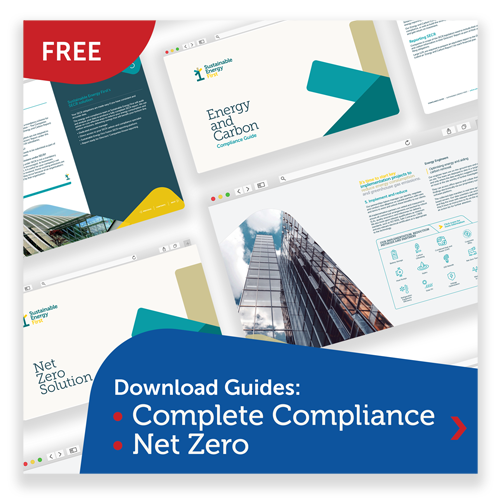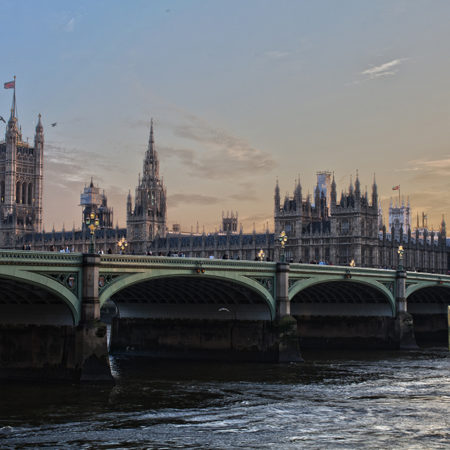As the UK gets closer to its 2050 net zero target, organisations are under more pressure than ever to report on their carbon impact and demonstrate meaningful action towards decarbonisation.
It can be challenging to keep ahead of this fast-changing policy area. To help, we’ve put together a quick lowdown of the mandatory carbon compliance schemes in place now, and what’s coming up on the horizon.
We’ve also put together a list of some of the most important voluntary reporting initiatives. These have stepped up to fill the policy gaps and are seen as a gold standard for transparent disclosure to investors and other key stakeholders.
Mandatory carbon and energy compliance
TCFD reporting
As of 6th April 2022, large UK-registered companies, asset managers and financial institutes are required by law to report on climate-related risks and opportunities in line with recommendations by the Taskforce for Climate-related Financial Disclosures (TCFD)..
What’s next? In line with TCFD guidance, the UK government will soon require firms to publish transition plans that align with the country’s net zero commitment. Plans should include emissions reduction targets, interim milestones and steps the organisations will take to hit those targets. In the UK, transition plans will be mandated for large firms in high-emitting sectors from 2023, and this will be extended to all large businesses by the end of 2024.
Other categories of business will gradually be brought into TCFD’s scope in the coming years, although the exact details are subject to consultation.
Streamlined Energy and Carbon Reporting (SECR)
SECR requires all large UK companies and large LLPs, as well as all quoted companies, to report on their annual energy use, greenhouse gas emissions and energy efficiency actions they have taken. It’s estimated that 11,900 firms fall under the scheme.
What’s next? The government has indicated that it will consult on changes to SECR, to bring it more in line with the new TCFD requirements. Following consultation, changes may be implemented in 2023, and could include bringing unquoted companies, quoted companies and LLPs all under the same reporting rules. Another change may be to set a roadmap for the introduction of mandatory Scope 3 emissions reporting.
For more information on SECR, read the SECR FAQs on our sister site, the Energy Advice Hub.
Energy Savings Opportunity Scheme (ESOS)
ESOS (phase 3) is a mandatory energy assessment scheme for large organisations in the UK. Organisations in scope of the scheme need to carry out audits of the energy used by their buildings, industrial processes and transport every 4 years, and identify cost-effective energy saving measures.
What’s next? The government has consulted on a potential shake-up of ESOS, including public disclosure of data and widening the scope to medium sized businesses. We may also see businesses required to include an assessment of actions needed for them to achieve net zero. We’ve written a summary of the main proposals being considered to strengthen ESOS – more will become clear when the outcome of the consultation is published.
UK Emissions Trading Scheme (UK ETS)
The UK ETS replaced the UK’s participation in the EU ETS on 1 January 2021. It applies to energy intensive industries, the power generation sector and aviation. Emissions trading schemes work on the ‘cap and trade’ principle, where a cap is set on the total amount of certain greenhouse gases that can be emitted by sectors covered by the scheme. This limits the total amount of carbon that can be emitted and decreases over time, as we head towards the UK’s 2050 net zero target.
What’s next? The government recently consulted on increasing the ambition and effectiveness of the UK ETS scheme. It included options for a net zero consistent cap, changes to Free Allocation policy and options for the expansion of the UK ETS to cover waste and maritime sectors. We’re awaiting the outcome, but you can learn more about the proposals in the consultation document.
Minimum Energy Efficiency Standards (MEES) regulations
On 1 April 2023, all non-domestic rented properties (including both new and existing tenancies) will need to achieve an EPC of E or above, due to a tightening of the Minimum Energy Efficiency Standards, or MEES.
What’s next? The government has proposed that all commercial properties being let have a minimum EPC rating of at least ‘B’ by 2030 and is considering a possible interim requirement of level ‘C’ by 2027. A recent Deloitte survey revealed that without energy efficiency upgrades, 80% of office buildings in London will be “unlettable” in 2030, so it’s clear that there is a lot of work still to do to bring buildings up to standard.
Future reporting schemes
Sustainability Disclosure Requirements
The government is developing new Sustainability Disclosure Requirements (SDR) over the next few years, which will go further than TCFD.
Whereas TCFD currently focuses almost exclusively on climate-related risks, SDR will have a broader sustainability (or ESG) remit. It will also go further with a “double materiality” focus: in simple terms, that means it will look at both the impact of climate on a business, and the impact of a business on the climate.
The government is set to consult on a new SDR framework this year, and the new rules could be in place within the next couple of years. You can read more in the government’s Greening Finance policy paper..
Performance-based energy ratings
A new energy performance-based rating system for large commercial and industrial buildings above 1,000m² is set for launch in 2022. The goal is to tackle the “performance gap” between how a building theoretically performs (assessed with EPCs) and how energy is being used in practice. Our guide to the new scheme is on our sister site, the Energy Advice Hub.
Voluntary schemes
Climate Change Agreements (CCA)
CCAs are voluntary agreements made between UK industry and the Environment Agency to reduce energy use and carbon dioxide emissions. In return, operators receive a discount on the Climate Change Levy (CCL), a tax added to electricity and fuel bills. An operator that has a CCA must measure and report its energy use and carbon emissions against agreed targets.
Read our guide to CCAs for more information.
CDP
CDP is a global environmental disclosure system adopted by over 13,000 companies to date. It’s considered as the gold standard for environmental reporting and aligns with TCFD recommendations. Organisations signed up to the scheme report through CDP on climate change, water security and forests. Over 800 cities have also disclosed environmental information through CDP. Visit the CDP website to learn more.
ISO50001
ISO50001 is a globally recognised framework for organisations to develop an effective energy management system. Following the “Plan-Do-Check-Act” process, it requires organisations to measure their energy use, and set reduction targets and objectives to meet those targets.
GRESB
GRESB is a global framework which assesses and benchmarks the Environmental, Social and Governance performance of real assets, providing standardised and validated data to the capital markets. The 2021 real estate benchmark covers more than 1,500 property companies, real estate investment trusts (REITs), funds, and developers. Combined, GRESB represents US $5.3 trillion in real asset value. Visit the GRESB website for more information.
Science Based Targets initiative (SBTi)
Science Based Targets provide companies with a clearly defined path to reduce emissions in line with the Paris Agreement goals, and they may soon become standard business practice. More than two thousand businesses around the world are already working with the Science Based Targets initiative (SBTi), a framework which requires you to set a validated emissions target, as well as disclose your emissions and target progress annually. Visit the SBTi website for more information.
To request a full energy and carbon compliance guide visit our sister site, the Energy Advice Hub.























